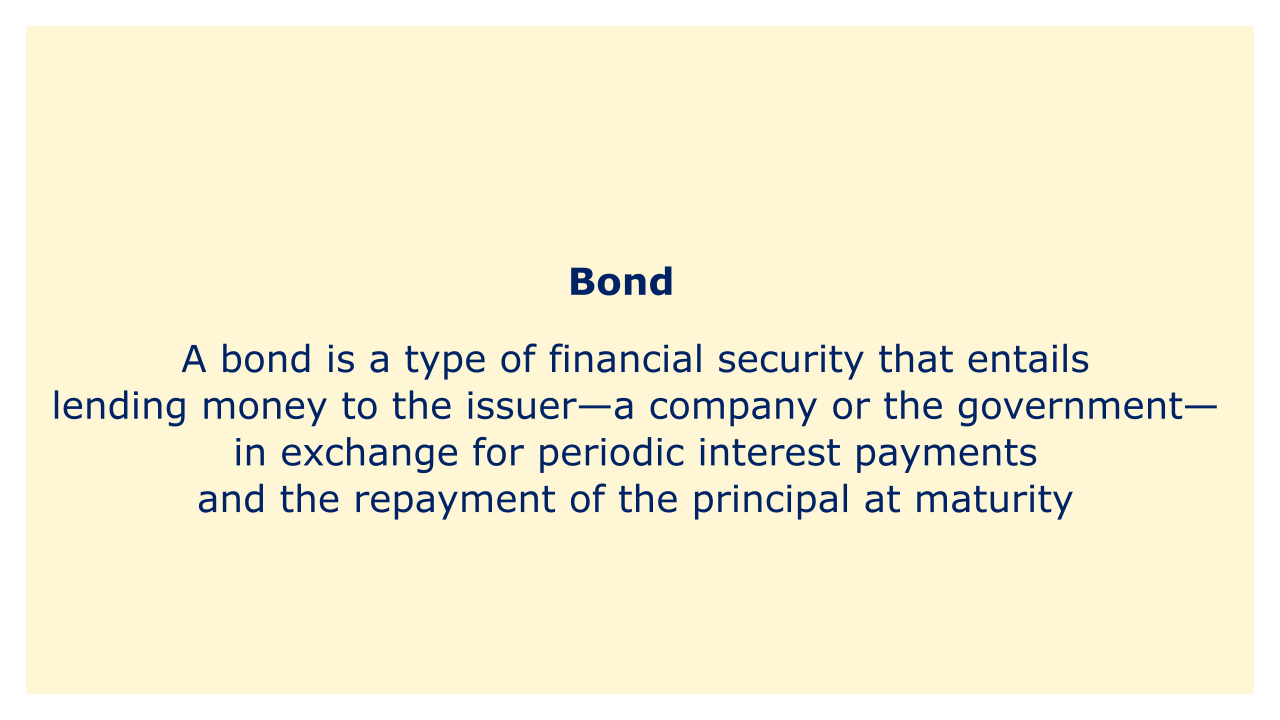 |
| Image: Moneybestpal.com |
A bond is a type of financial security that entails lending money to the issuer—a company or the government—in exchange for periodic interest payments and the repayment of the principal at maturity. Bonds are sometimes issued with a fixed interest rate, which means the issuer commits to pay the bondholder a certain rate of interest over a predetermined time period, usually twice a year. A bond's indenture usually specifies all of its terms and conditions, such as the interest rate and maturity date.
The fixed-income market, which also includes other debt securities like bills and notes, contains bonds as a significant part of its product offering. Given that they offer a consistent income stream in the form of interest payments, they are sometimes viewed as less risky investments than equities. Bonds may still be subject to a certain amount of credit risk, though, because the issuer's capacity to make timely interest and principal payments may be impacted by changes in their financial situation.
Bonds are frequently purchased and sold through a network of dealers in the financial markets, and the market price of a bond is affected by a number of variables, such as interest rates, the issuer's creditworthiness, and the bond's remaining time before maturity. Bonds are a common holding in portfolios of investors looking to diversify their holdings and produce a reliable income stream. Bonds provide a way for issuers to generate money and for investors to buy debt securities, and they, therefore, play a critical role in the operation of the global financial system.
